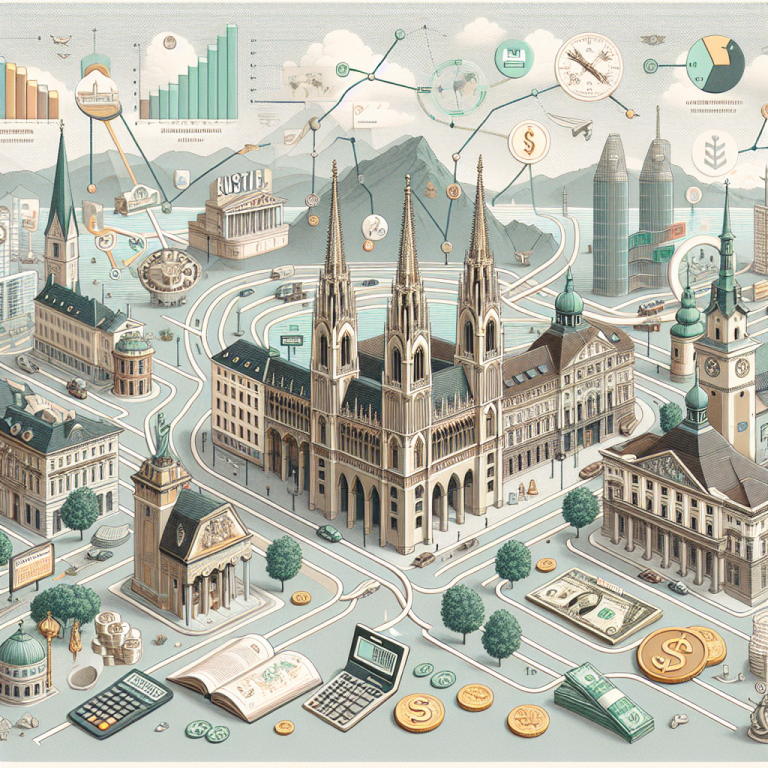“`html
Fintech Innovations in Alternative Lending Solutions
In the financial landscape, the traditional methods of borrowing money are undergoing a remarkable transformation, making way for fintech innovations that redefine alternative lending solutions. As homeowners and entrepreneurs seek agile financing options, understanding how these alternative methods operate can provide crucial advantages. This exploration dives deep into the innovative offerings from fintech companies like bunq, Mambu, and CreditAccess Asia, while also highlighting the roles of traditional banks such as ING Bank, Rabobank, and others in adapting to this shifting terrain.
Throughout the article, you will learn about the various options available for obtaining loans, the technologies driving these changes, and the significant benefits and trends surrounding fintech solutions. By the end, you’ll be equipped with the knowledge you need to make informed decisions about accessing loans in the modern marketplace.
Carregando Oportunidades...
Understanding Alternative Lending Solutions
Alternative lending encompasses a wide range of financing solutions that deviate from traditional banking norms. Unlike conventional loans from banks which often involve lengthy processes and strict requirements, alternative lending options typically offer more accessible and flexible solutions. These can include peer-to-peer lending, crowdfunding, and financing through fintech platforms.
For instance, platforms like bunq allow users to manage their finances on-the-go, integrating banking with an intuitive app. By leveraging technology, these platforms streamline the lending process, making it faster and more user-friendly. An important aspect of these solutions is their ability to cater to individuals and businesses that may lack traditional credit history, thus widening the accessibility of credit.
Moreover, innovations in this sector are often driven by big data and artificial intelligence, enabling lenders to perform more accurate risk assessments. This leads to better personalization of loan offers and improved customer satisfaction. As we move forward, these alternative lending solutions are expected to become increasingly relevant in the financial ecosystem.
The Role of Technology in Lending
Technology stands at the forefront of the alternative lending revolution. With advancements in mobile applications and digital platforms, users can now apply for loans with just a few clicks. The integration of artificial intelligence and machine learning algorithms allows lenders to analyze vast amounts of data, assessing creditworthiness in minutes rather than days. For businesses, this technological edge can mean the difference between securing necessary funding or missing out on pivotal growth opportunities.
Companies like Mambu are paving the way in providing banking-as-a-service platforms that enable lenders to create and offer their own financing solutions easily. This model promotes speed and efficiency, allowing fintechs to focus on customer acquisition and improving user experience. As more businesses adopt these technologies, we can expect a surge in innovative finance products tailored to specific consumer needs.
| Technology | Impact on Lending |
|---|---|
| AI and Machine Learning | Improved risk assessment and faster loan approvals |
| Blockchain | Enhanced security and transparency in transactions |
| Mobile Apps | Accessible loan applications and real-time account management |
Benefits of Alternative Lending Solutions
Understanding the benefits of these alternative lending solutions can significantly influence the decision-making process for potential borrowers. First and foremost, alternative lending platforms often boast faster approval times, allowing borrowers to access funds when they need them most. This is particularly beneficial for small businesses that may face cash flow issues or need immediate financing for unexpected expenses.
Additionally, alternative lending can offer lower barriers to entry, making it easier for individuals with limited credit history to secure loans. Fintech companies typically utilize a range of data points beyond traditional credit scores, such as transaction histories and online behavior, to assess borrowers. This enables more people to qualify for loans that they might otherwise be denied by traditional banks.
Checklist for Requesting a Loan Through Fintech Platforms
- Research various fintech lenders to compare interest rates and loan terms.
- Check your credit score and review your financial history.
- Gather necessary documentation (income proof, identification, etc.) for the application.
- Understand the fees associated with the loan (origination fees, late fees, etc.).
- Ensure you have a clear understanding of the repayment terms.
Utilizing this checklist can help streamline the loan application process and ensure that borrowers are well-prepared to make informed choices.
Traditional Banks vs. Fintech Companies
The relationship between traditional banks and fintech companies is evolving. While banks like ABN AMRO and Triodos Bank play a critical role in the financial ecosystem, fintechs offer agility and innovation that legacy institutions sometimes struggle to match. The challenge for traditional banks lies in adapting their operations to meet the demands of today’s tech-savvy consumers.
Some banks are embracing partnerships with fintech firms to enhance their service offerings. For example, by leveraging the infrastructures provided by fintech companies, established banks can provide faster, more efficient lending solutions while maintaining regulatory compliance. This symbiosis can lead to a more vibrant financial landscape where innovation thrives, ensuring that consumers receive the best possible options.
Current Trends in Fintech Lending
As alternative lending continues to evolve, keeping an eye on emerging trends is essential. One notable trend is the increasing diversification of funding sources. Fintechs are exploring avenues such as crowdfunding and social lending, which democratize the lending process by allowing individuals to participate in funding projects and businesses.
Furthermore, sustainability is becoming a key focus in the lending industry. Institutions like ASN Bank and Triodos Bank prioritize financing projects with positive environmental and social impacts. This shift not only responds to consumer demand for ethical banking practices but also aligns with global sustainability goals.
Frequently Asked Questions (FAQs)
What types of loans can I get from fintech companies? Fintech companies offer a variety of loan types, including personal loans, business loans, and peer-to-peer loans.
How do I qualify for an alternative loan? Each lender has its criteria, but many consider factors beyond traditional credit scores, including income and transaction history.
Are alternative loans more expensive than traditional loans? While some fintech loans may have higher APRs, the speed and flexibility they offer can often justify the cost.
Can I apply for a loan if I have bad credit? Yes, many alternative lenders provide options for individuals with less-than-perfect credit.
What should I consider before taking a loan? It’s crucial to understand the interest rates, repayment terms, and any associated fees.
How long does it take to get approved for a loan? Approval times can vary, but many fintech companies can provide decisions within hours or days.
What role do traditional banks play in this space? Many banks are partnering with fintech companies to enhance service offerings while maintaining compliance and reliability in lending.
The Future of Alternative Lending
The future of alternative lending appears bright, driven by continued technological advancements and evolving consumer behaviors. As younger generations grow accustomed to digital solutions, their preferences will further push financial institutions, both traditional and fintech, to innovate. The ongoing integration of AI and blockchain technology will likely enhance security, improve user experiences, and streamline lending processes.
Moreover, we anticipate a growing emphasis on ethical lending practices, as consumers demand transparency and accountability from their lenders. Institutions that can effectively cater to these demands while offering competitive products will thrive in the changing financial landscape.
Investing time in understanding these trends and innovations can empower consumers to navigate the lending landscape with confidence. Whether seeking a personal loan through a traditional bank or venturing into the world of fintech, being informed will ensure that individuals and businesses alike can make sound financial decisions.
As you explore the world of alternative lending solutions, consider how these innovations can not only meet your immediate needs but also align with your long-term financial goals. Now, take advantage of the resources available and embark on your journey to smarter borrowing options.
“`



